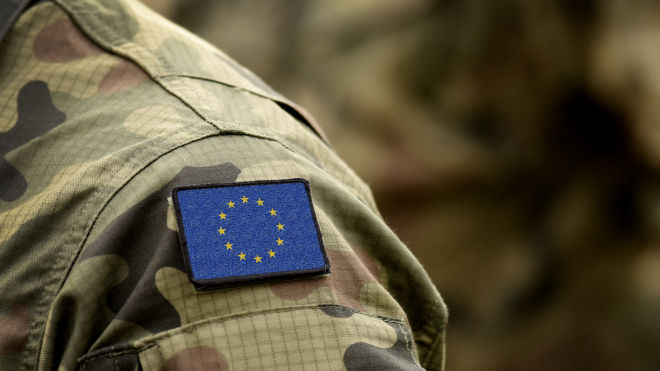
15 Nov Reflections on European defence
Posted at 09:00h
in NOTIONES
NOTIONES Partner Lt.Gen. (res.) Leonardo LESO is President of the private security company SKP Consulting. His job is to study and prepare military security operational plans and training programmes thanks to his great experience and high professional skills.
Gen. LESO would like to share with the NOTIONES Network some reflections about the EU Defence:
-
-
- Given the objective difficulties of having a European foreign policy, mainly due to the fierce commercial competition between the major economic powers of the continent, to activate a common defense system in the immediate future the only option appears to be to form coalitions of volunteers (coalition of willings) or to stipulate a mutual defense pact, a sort of alliance like the Atlantic Pact. This will automatically bind all member States to intervene militarily to face any attacks on one or more European countries or even to conduct stabilization missions, subject to the consent, for example, of at least 2/3 of the adherents, thus avoiding the unanimity very difficult to obtain for the previous considerations.
- For this reason, a formula of international law should be sought that makes it possible to respect simultaneously the military obligations towards Europe and towards NATO of the countries belonging to both alliances, so as not to create dichotomies and overlaps and to establish in advance in what circumstances one of the two treaties prevails over the other.
- The Member States, whose borders correspond to the borders of Europe to the east, south-east and south, are in fact areas the most exposed to threats and penetrations and thus constitute the first European line of defence. It follows that their military needs should be prioritised over others. It is precisely these countries that could be the promoters of a common defence pact. The Russian invasion of Ukraine, which also threatens countries already belonging to the European Union, has dramatically stressed its importance and urgency.
- In order for Europe to have any influence in world politics, it must therefore have a credible military instrument, which is also essential if it is to be able to respond effectively to its heartfelt ambition to play a role as a “global security provider”. For this reason, a serious process of homogenization, rationalization and centralization of command of the Armed Forces of European countries should be started as soon as possible, assigning to the States specific areal competences in the four dimensions (land, maritime, air and space) according to the real and particular capabilities and attitudes of each, in adherence to the strategic needs of every country. All this would allow a considerable containment of military spending, reducing by more than 1/3 the total defense budgets of all the countries of the European Union. The greatest resistance to this integration process seems to come from the European defence industries in fierce and often short-sighted competition with each other.
- As a partial confirmation, it is quoted the considerations expressed at an international conference of few years ago by Ambassador Stefano Ronca, former diplomatic advisor to two Presidents of the Italian Republic(Palace, 2015): “At the moment, governments do not yet seem ready to delegate their autonomy to a supranational body in the field of security. Nor is there yet in Europe a driving force and catalyst like the one that the United States had shown it could exercise within NATO in October 1999, inducing in a few weeks all the countries of the Alliance to sign the Activation Order authorizing air attacks on Serbia: a real act of war, the first of NATO, against a sovereign country. A catalyst for decisions of this magnitude in Europe does not seem to exist yet.” “The other obstacle to the emergence of a European Defense is the interests of the national defense industries, reluctant to accept the rationalizations that the concentration of weapons systems in Europe would entail. Concentration would avoid overlaps and allow fruitful economies of scale and advantageous effects on the cost-effectiveness in production, but fewer orders and fewer profits for each of them. The high costs of European products explain, among other things, the convenience of “buy American” in the defense sector for many European countries and not only … It is well known that where in the United States there is a factory that produces tanks, in Europe there are fourteen. Not to mention the cost deriving from the lack of integration of the forces of European countries which, although almost always operating within multinational contingents, are distributed almost exclusively on a national basis“.
-
References
Palace, M. (2015). AMBASSADOR STEFANO RONCA DELIVERS A STATEMENT ON BEHALF OF THE ORDER OF MALTA TO THE WORLD HUMANITARIAN SUMMIT GLOBAL CONSULTATION IN GENEVA. Tratto da https://www.orderofmalta.int/photo-and-video-galleries/ambassador-stefano-ronca-delivers-a-statement-on-behalf-of-the-order-of-malta-to-the-world-humanitarian-summit-global-consultation-in-geneva/




